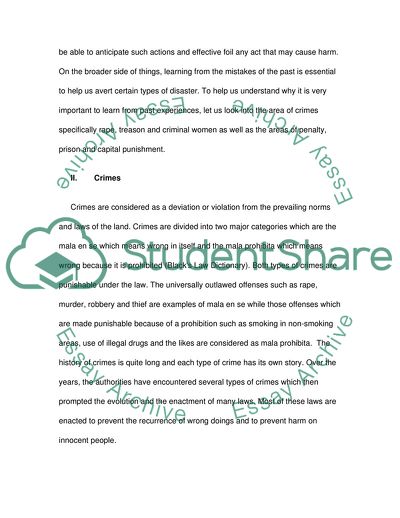Cite this document
(The History of Crimes Coursework Example | Topics and Well Written Essays - 3000 words, n.d.)
The History of Crimes Coursework Example | Topics and Well Written Essays - 3000 words. https://studentshare.org/law/1710928-criminology-histories-of-crime
The History of Crimes Coursework Example | Topics and Well Written Essays - 3000 words. https://studentshare.org/law/1710928-criminology-histories-of-crime
(The History of Crimes Coursework Example | Topics and Well Written Essays - 3000 Words)
The History of Crimes Coursework Example | Topics and Well Written Essays - 3000 Words. https://studentshare.org/law/1710928-criminology-histories-of-crime.
The History of Crimes Coursework Example | Topics and Well Written Essays - 3000 Words. https://studentshare.org/law/1710928-criminology-histories-of-crime.
“The History of Crimes Coursework Example | Topics and Well Written Essays - 3000 Words”. https://studentshare.org/law/1710928-criminology-histories-of-crime.


